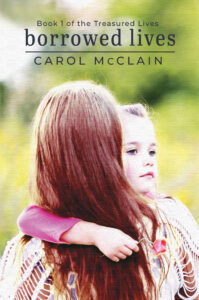Denial: Step One in the Seven Stages of Grief
“It is better to go to a house of mourning than to go to a house of feasting, for death is the destiny of everyone; the living should take this to heart” (Ecc. 7:2, NIV).
Grieving can be for any traumatic issue. In my life, I’m processing grief over multiple losses and problems. However, if you have experienced sexual abuse, domestic turmoil, divorce, racial injustice–well, look at the news headlines–you can plummet into mourning.
No matter what you face, you can not only survive but thrive. First and foremost–God’s grace and time will bring you through your pain. That is if you allow healing into your life. Don’t be dismayed if healing takes time or if you feel like you’re going in circles and not forward with life. There is no formula everyone follows.
Healing is a step at a time.
Elisabeth Kubler-Ross conceptualized the process of grief. She named five steps or stages.
Kubler-Ross’s Five Stages of Grief
- Denial
- Anger
- Bargaining
- Depression
- Acceptance
Later, her seminal five was extended to seven adding shock to the top of the list and processing to the end.
In the original five, the first stage of processing grief threw me for a loop. Denial.
In my case, could I deny my mother died? Close on her heels, my brother’s heart seized and he passed away while having a wonderful time with his family in Australia. Coupled with surgeries and the sudden death of my daughter’s father, I couldn’t deny death.
And don’t expect grief to follow a linear path. Also, don’t assume you’ll do a one-and-done. Denial: been there, done that. Check it off my list.
But back to denial. Facts could not be denied. Two people I cherished died. Then I came across the University of Washington’s post on the stages of grief. Suddenly, my emotions became clear.
Denial includes:
- avoidance: my sister would not go to the funeral home, nor would she work on the estate. Simple chores like closing a joint banking account shut her down.
- procrastination: we put off the wake. My brother had to go to Florida for his grandson’s first birthday. All plans had been made for the affair. They had plane tickets. I suggested we hold the wake until they returned. Unfortunately, that would have been on Halloween. We did not want a funeral then. We put the wake off for another day. Can you say “procrastination?”
- forgetting: one doesn’t forget a death. In forgetting, confusion can set in. How do we organize the funeral? Who was supposed to ride with whom to the graveside? Maybe you just go numb and eat a gallon of Ben and Jerry’s or bury your head in a book and forget.
-
- When I returned home, I hid.
- Talked to no one.
- Put the whole awful idea behind me which led to number four on this list.
-
- mindless behavior: I cleaned closets. The local thrift store received bag loads of my hoarded gems. Clothes from the ’80s. Shoes not worn. Ditto for the jewelry. Mindlessness kept me busy.
- easily distracted: While cleaning closets, I noted games on my phone. With an abundance of free lives donated by other players of Candy Crush, I could take a break from my mindless behavior and segue into #6.
- keeping busy: Reading. I kept immersing myself in books. First, I needed to make my Goodreads goal (very important in life). Perhaps this did double time into forgetting and avoidance and procrastination.
 thinking/saying “I’m fine:” I didn’t want to go to church when I returned South from the funerals because everyone would ask how I was. Only one answer fit. “I’m fine.” I couldn’t tell them I wanted to burrow in my bed with the covers over my head and sleep until my birthday next year. We’re not fine, even when we’re laughing.
thinking/saying “I’m fine:” I didn’t want to go to church when I returned South from the funerals because everyone would ask how I was. Only one answer fit. “I’m fine.” I couldn’t tell them I wanted to burrow in my bed with the covers over my head and sleep until my birthday next year. We’re not fine, even when we’re laughing.
So you thought you were done with denial so why are you sleeping until noon? Stages of grief aren’t linear and we can cycle back to the first stage of grief. Don’t think you’re weird because you missed a step. This process will recycle. This is normal.
In the end, in processing, in letting God into your life, you will discover as stated in Ecclesiastes 7, your heart will be made whole. We’ll value our lives more because we’ve seen they’re ephemeral. We’ll live for what is important–kindness, love, generosity.
We will heal.
Don’t forget Borrowed Lives
 Book three, Tangled Lives, comes out in July. You’ll want to read book one.
Book three, Tangled Lives, comes out in July. You’ll want to read book one.
Meredith Jaynes, an artisan, cycles through the stages of grief and then she finds three girls abandoned by their parents. If she turns them over to CPS they’ll be separated. If she takes them? What the heck would she do with three waifs?
You’ll laugh, cry, and grow as you read this novel.

[…] stated in last week’s blog dealing with denial (click here to read), grieving can be for any traumatic issue. In my life, I’m processing grief over multiple […]